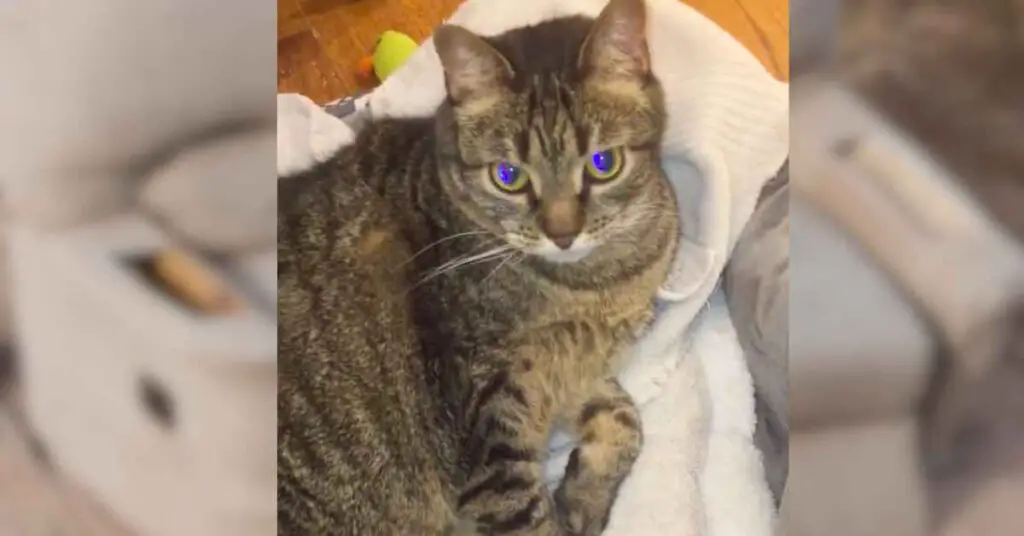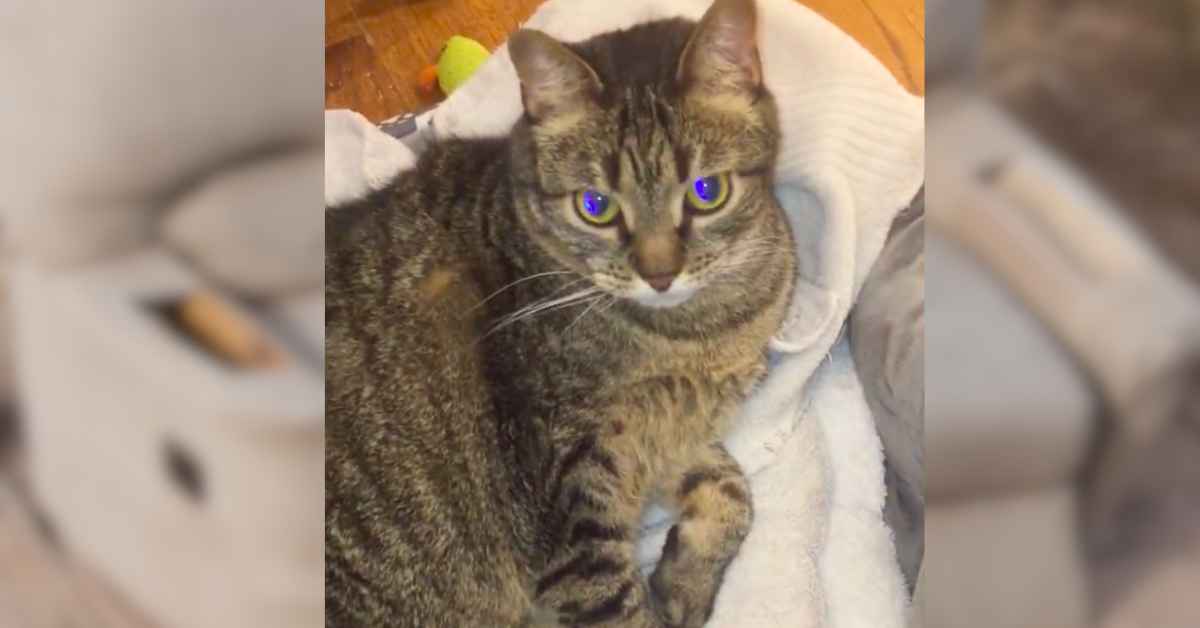Cats might be independent but they always have a soft side. They love to cuddle and purr and brush against us. We give them cute toys, tasty food and all the love they deserve. How could anybody harm them?
A cat called Senior Peanut lived a life of fear and neglect. For four years, her only safe place was under a sofa where she could hide away from her terrible owner. How could somebody scare a cat so much that they had to hide under the sofa?

Source: Gandolf_s
She spent those years hiding under a sofa, a space that became her only refuge from the harsh world outside. There were no toys to play with, no soft bed to rest on, and no one to show her love or kindness. Her fear was so ingrained that when approached, she would instinctively cower, anticipating a blow rather than a gentle touch.
Peanut’s suffering was compounded by neglect, leaving her to live in filth, often unable to goto the toilet because she was too afraid to venture out. Her existence was one of survival, not of living. When rescue finally came, it was clear that Peanut had been through far too much for any animal to bear.
But rescue did come, and with it, a promise of a better life. Although no one else came forward to adopt Peanut, she has now found a forever home with a compassionate caregiver who has vowed to care for her for the rest of her life.
The road to recovery is long and challenging, but Peanut is now in a place where she can begin to heal. She is finally experiencing what it means to be safe, to be cared for, and to be loved. Though she still cowers when touched, fearing the worst, she is slowly learning that not all humans mean harm. Every small step forward is a victory in her journey toward recovery. She now has the chance to experience real love and that human touch can be kind and gentle.
The Psychological Impact of Long-Term Abuse on Cats
Peanut’s story is a heartbreaking reminder of the profound effects that long-term abuse can have on cats. Cats who suffer from prolonged mistreatment often develop deep-seated psychological issues, including anxiety, fear, and even PTSD. These cats may exhibit behaviors such as cowering, aggression, or extreme timidity, all of which are defense mechanisms they developed to survive in their previous environment.
Rehabilitating a cat like Peanut requires immense patience and understanding. The process involves creating a safe, stable environment where the cat can begin to learn that not all humans pose a threat.
Trust-building is a slow process, often taking months or even years, and it’s important to recognize that some cats may never fully recover from their trauma. However, with time, love, and consistent care, these cats can begin to heal.
Adopting a cat with a history of abuse is a commitment to providing them with the love and care they were denied for so long. It’s about giving them a chance to experience a life free from fear, where they can finally feel safe and cherished. For Peanut, and others like her, this journey to recovery is a testament to the resilience of the feline spirit and the transformative power of compassion.

